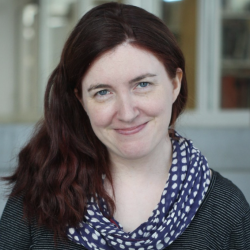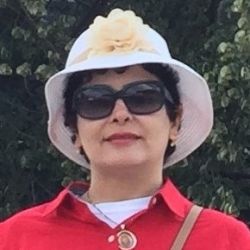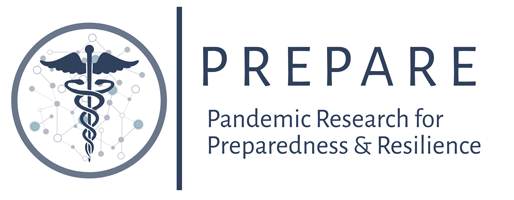Members
PREPARE is a global network of passionate members who drive forward the scientific and public health advances necessary to ready us for the next pandemic. Join us to grow your network, find and share upcoming events, and participate in our workshops!
Enter keywords to search the member names or info cards:
Davida Smyth

- Associate Professor of Microbiology
Davida S. Smyth received her Ph.D. in Microbiology from the University of Dublin, Trinity College, Ireland, and completed her postdoctoral training at New York Medical College, the University of Mississippi Medical Center, and New York University. She has served as Associate Professor and Chairperson of the Department of Natural Sciences in Mercy College’s School of Health and Natural Sciences. There she taught environmental science, introductory biology, microbiology, and genetics and developed classroom-based research experiences in microbial genomics. Previously, she was an Assistant Research Scientist in Richard Novick's lab at NYU Langone Medical Center, was an Adjunct Lecturer for the online Masters in Bioinformatics program at NYU Tandon School of Engineering, and an Assistant Professor of Biology at New York City College of Technology (NYCCT). Her research focus is on the field of microbial epidemiology and genomics and she has more than 20 original articles in peer-reviewed journals. She is an Associate Editor for BMC Infectious Diseases and Frontiers in Microbiology. She is an external committee member for Mercy College's Adjunct Academy component of their Inclusive Excellence Project and Peer-Led Team Learning Program for Biology, Chemistry, and Psychology students. In 2019, she was invited to the steering committee of the Research Experiences in Microbiomes Network (REMNet) of CUNY and became a Co-PI in 2020. At the New School, she directed the Biosafety Level 2 research lab. She developed several new courses that involve undergraduates in research and incorporate civic engagement and social justice into the curriculum. Her freshman seminar "How the Toilet Changed the World" taught students about the role and impact of sanitation on our society and about the ongoing and future challenges associated with both access to toilets and sustainable toilet design. Her "Microbial Ecologies" course taught students about the importance of microbes in our world and how we need to protect and preserve microbial diversity for planetary health. Students also participated in Tiny Earth, searching for novel antibiotic-producing microbes from the NYC urban soil and water environments. Her "Evolution, Mutation and Computation" class exposed students to coded lifeforms "avidians" and students performed experiments on a digital platform called Avida-Ed. Her "Microbiome of Urban Spaces" course involved students in studying the microbiome of our built spaces. Students chose their own research site and studied it using next-generation sequencing technology and an iSeq sequencer. Dr. Smyth also mentored students as part of the Urban Barcode Research Program of Cold Spring Harbor Labs. In 2020 she was awarded funding from the NYC DEP and the National Science Foundation to study microbial transmission on the New School campus.\
She is devoted to undergraduate research and her students have presented their work at several national and international meetings including the Annual Biomedical Research Conference for Minority Students (ABRCMS), and the American Society for Microbiology (ASM) annual conference. With her undergraduate team, she researches the role of the built environment and anthropogenic activity in driving antibiotic resistance, a major global health threat. She also engages in pedagogical research on improving civic and scientific literacy in biology and integrating authentic research into the curriculum to improve student engagement and success in science. Dr. Smyth also guides and mentors future faculty and adjuncts to successfully apply for academic positions in teaching and beyond. Since 2014, she has been involved with SENCER (Science Education for New Civic Engagements and Responsibilities) and was appointed a SENCER Senior Leadership Fellow in 2018. She was awarded the Mercy College Excellence in Teaching Award in 2018. In 2019 she became a PULSE Fellow. In 2020, she was appointed Deputy Director of the National Center for Science and Civic Engagement. In 2021 she was awarded the Faculty Excellence in Advising award from The New School. In 2022, she received the Four Year College and University Section Biology Teaching Award from the National Association of Biology Teachers.
Epidemiology and Public Health, Infodemiology, Social Networks, and Scientific Communication, Education, Training, and Workforce Development, Surveillance & Contact Tracing, Computing & Data Infrastructure, and Privacy
Shabnam Sodagari

- Associate Professor of Computer Engineering and Computer Science
Dr. Shabnam Sodagari is an associate professor of Computer Engineering and Computer Science (CECS). She received her PhD degree from Penn State (Pennsylvania State University). Her current research interests include data analytic-centered and machine learning-based robust IoT healthcare systems, dynamic spectrum access, and secure next-generation communications. Her expertise further includes providing consultation to Academic Affairs in support of the CSU Chancellor's Office initiatives. She is a senior member of the IEEE and has several publications in impactful journals and flagship conferences.
Epidemiology and Public Health, Education, Training, and Workforce Development, Surveillance & Contact Tracing, Computing & Data Infrastructure, and Privacy


